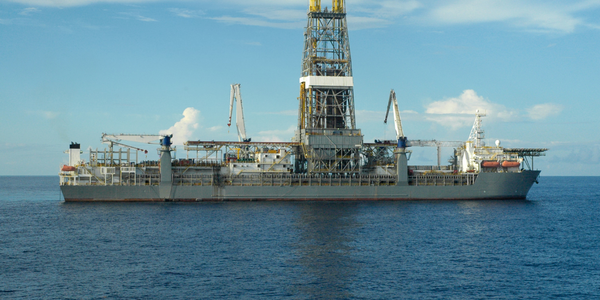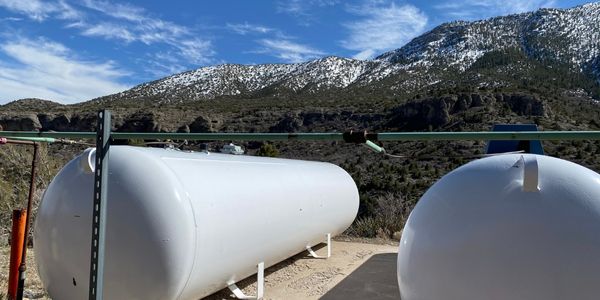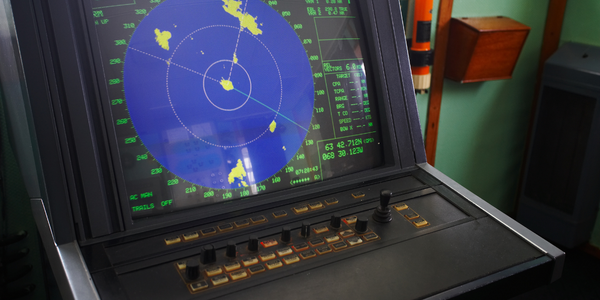Jo-Kell Illuminates the Differences of RF-SMART WMS Lite
Customer Company Size
SME
Region
- America
Country
- United States
Product
- RF-SMART
- NetSuite
Tech Stack
- Cloud-based WMS
- Barcode Scanning
Implementation Scale
- Enterprise-wide Deployment
Impact Metrics
- Productivity Improvements
- Customer Satisfaction
- Digital Expertise
Technology Category
- Functional Applications - Warehouse Management Systems (WMS)
- Functional Applications - Enterprise Resource Planning Systems (ERP)
Applicable Industries
- Marine & Shipping
Applicable Functions
- Warehouse & Inventory Management
- Logistics & Transportation
Use Cases
- Inventory Management
- Supply Chain Visibility
- Warehouse Automation
Services
- System Integration
- Software Design & Engineering Services
About The Customer
Jo-Kell is an electrical distributor specializing in power and control equipment for military and commercial marine and industrial markets. With warehouses in two locations, the company manages 60,000 SKUs and maintains over $5 million in inventory at any given time. Jo-Kell aimed to modernize its operations by replacing manual processes with a cloud-based WMS solution. The company sought to consolidate its systems into NetSuite and implement a WMS solution to track inventory and error rates more efficiently. The initiative was driven by the need for better integration, efficiency, and accuracy in their warehouse operations.
The Challenge
Jo-Kell, an electrical distributor, sought to modernize its systems by phasing out manual processes and implementing a cloud-based WMS solution. Initially, they chose a WMS solution that was supposed to integrate seamlessly with NetSuite. However, the implementation dragged on with no end in sight, and many small details did not meet their expectations. Despite significant investment, Jo-Kell realized they were wasting time and resources on a solution that was not delivering the expected results. This led them to explore alternative WMS solutions that could better meet their needs.
The Solution
After realizing their initial WMS solution was not meeting their needs, Jo-Kell decided to switch to RF-SMART, a native NetSuite solution. The transition was swift, with the new system fully operational within a week. RF-SMART's ease of configuration and integration with NetSuite eliminated previous issues and streamlined the implementation process. The new system allowed Jo-Kell to move away from manual data entry by implementing barcode scanning. Employees could now scan items with handheld devices, significantly reducing errors and improving efficiency. RF-SMART also enhanced shipping processes by reducing the steps required to complete a shipment and eliminating integration problems with NetSuite. The cycle count functionality of RF-SMART further boosted accuracy and productivity by allowing inventory counts without disrupting regular business operations.
Operational Impact
Quantitative Benefit

Case Study missing?
Start adding your own!
Register with your work email and create a new case study profile for your business.
Related Case Studies.

Case Study
Drill ship power challenge: hybrid solution solves distribution issues
Aspin Kemp & Associates (AKA), a manufacturer of electrical power and control systems headquartered in Montague, PEI, encountered one with its hybrid power initiative, the first hybrid drill floor destined for installation on ultra-deepwater drill ships operated by Transocean, Swiss offshore drilling contractors. Since on-site modification was impossible and scrap recycling of any modifications was unacceptable, the enclosures had to arrive ready-to-install.

Case Study
Ensures Tanker Safety and Emissions Compliance
Storage tanks are irregular in shape and a certain amount of mathematical modelling is required to get an accurate representation of volume and, more importantly, the weight of material in each tank. In addition, countries have different emission regulations, so the ships position needed to be accurately known in order to geotag emission data.

Case Study
Real-time Networked Sonar System for Ships
A multinational, knowledge-based corporation that delivers marine electronics solutions is utilizing industrial Ethernet technology to help ensure that operations at sea are dependable and optimal. Based in Europe, the company has nearly 4000 employees working in 20 countries around the world, and produces high-tech systems for offshore oil and gas operations, merchant marine systems, and various applications for the defense and aerospace industries. The company produces products and systems used by merchant vessels and offshore installations for positioning, navigation, automation, as well as for surveying and monitoring the seabed, and for fishing vessels and fi sheries research. As one of the major suppliers of high quality marine electronics in the world, their products include chart plotters for yachts, triple redundant dynamic positioning systems for oil drilling rigs, and sonar and instrument systems for scientifi c research vessels. Products used for marine applications must be rugged enough to endure the corrosive effects of salt water, and be able to withstand excessive amounts of vibration and shock. For this reason, the company only uses DNV and GL certified products and components to ensure that their systems can meet the high standards required by the maritime industry.

Case Study
Fleet Management Connectivity Solution for Marzam
Marzam, in order to ensure the best service, invested 3 million dollars in the construction of 2 fuel oil tanks with 40k gallons and 10k gallons capacity each, located in Manta, Ecuador. The customer needs to keep fleet operations going with fuel available at all times in order to guarantee quality of service. KEY ELEMENTS FOR THE CUSTOMER: Real-time level monitoring: Tank infrastructure remote level monitoring. Configure alerts and notifications when reaching critical values to avoid the need for emergency refills and optimize supply schedules. Real-time consumption monitoring: The customer needed an easy way to monitor in real-time accurate values of consumption.

Case Study
Mitsubishi Electric's Edge Computing Solution Powered by Wind River VxWorks
Mitsubishi Electric Corporation, a global leader in factory automation (FA) applications, identified edge computing as a critical component of the Industrial Internet of Things (IIoT). The company aimed to enhance device and data security, reduce data traffic to the cloud, and enable faster response to network or device issues. In 2018, Mitsubishi Electric launched its first line of industrial hardware products designed for edge computing, the MELIPC Series. The primary development goals for MELIPC were to support the type of edge computing promoted by Mitsubishi Electric and to introduce advanced vision technology for device control. The flagship computer of the MELIPC line, the MI5000, was designed to combine real-time equipment control with high-speed data collection, processing, diagnosis, and feedback in a single machine. However, the development team needed a real-time control platform that could seamlessly integrate real-time control with proven analytic and diagnostic applications.

Case Study
Migrating to Software-Only Licenses for More Responsive License Management
The world’s premier shipping companies work with the software solutions of ABB Marine & Ports to get their vessels safely and efficiently to their destinations. A loyal customer of Wibu-Systems for over a decade, ABB has been relying on CodeMeter dongles to store the license keys for their ABB AbilityTM Marine Advisory System - OCTOPUS.The current version of the system is using Wibu-Systems’ robust metal-case CmStick ME, a perfect choice for the rugged conditions at sea. As satellite communications has made fast Internet connections at sea a common reality for maritime operators, the company is looking to move from physical to software solutions to streamline its logistics processes.


